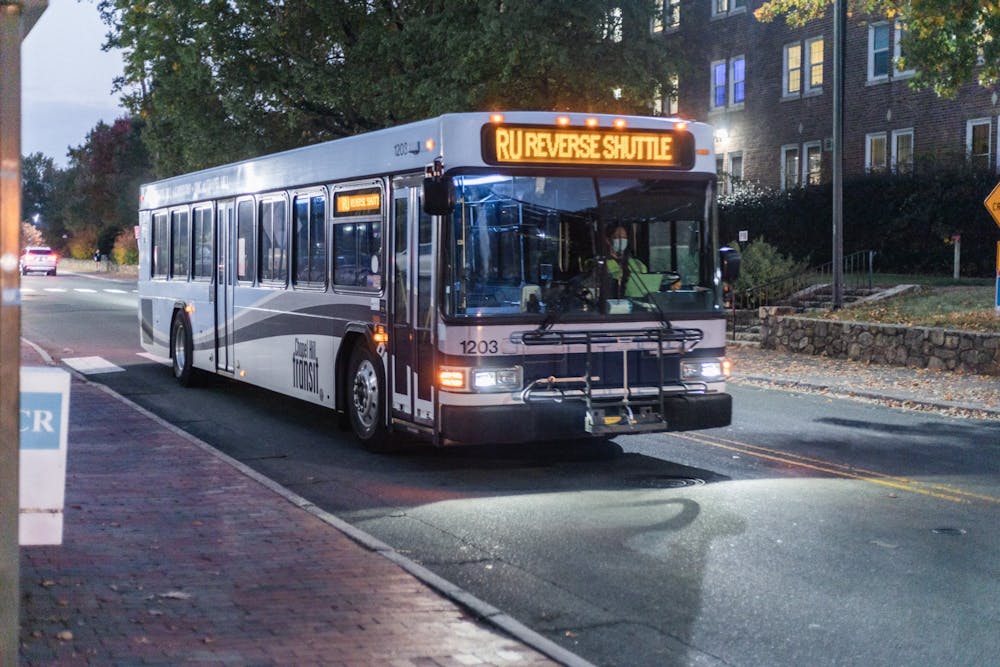Bus operators go through customer service and safety training — and they participate in refresher training regularly. Litchfield said in an email that operators know how to de-escalate certain situations and who to call if they need assistance.
The crisis counselor can respond in situations at bus stops, Litchfield said, like if people are in the area for an extended period of time with little to no intention of riding a bus, potentially making it challenging for other passengers to use that stop.
However, if somebody’s health or safety is immediately at risk, a team member or passenger should contact 911. The emergency response would dispatch the appropriate safety personnel, with the possible inclusion of a crisis unit team.
“If a bus operator calls 911 for assistance, then we would come out and try to obviously de-escalate the situation, make sure that everybody is safe, figure out what is happening and investigate if a crime has occurred or not,” Chapel Hill Police Sergeant Charlie Pardo said.
On Jan. 10, the University received a report of sexual assault on a transit bus and sent out an Alert Carolina notification to the University community. This situation is currently under investigation, according to Pardo.
Litchfield said that reports of sexual assault on transit are rare.
“I remember seeing that and I was slightly surprised because since I've been here, I hadn't heard of anything similar to that,” UNC sophomore Isaiah Kirkpatrick said. “I'm hoping it was just an anomaly.”
First-year Arwen Bella said she feels safer on transit buses than at bus stops. She said some bus stops on the outskirts of campus lack lighting and that she feels nervous when she’s alone at night.
“Everyone looks like silhouettes,” she said.
Rhyan Moore, a UNC first-year, echoed Bella’s sentiments and said bus stops can be scary, especially on Franklin Street at night.
To address concerns, transit is currently implementing a Bus Stop Improvement Plan. Under this plan, 11 bus stops have been upgraded since 2019, and over 70 bus stops are in the design phase.
Stops are being improved to meet Americans with Disabilities Act requirements and address safety and customer concerns. The goal of the plan is to have all bus stops be safe, comfortable, accessible and easily identifiable.
To get the day's news and headlines in your inbox each morning, sign up for our email newsletters.
“Usually, the frame of reference that I utilize for a bus stop is, ‘Would I feel comfortable with my wife and son utilizing the bus from that bus stop?’” Litchfield said. “And if the answer is no, which it sometimes is, then we need to make changes to that bus stop to make it safer.”
Pardo recommends that passengers ride with a buddy to avoid being at a bus stop by themselves, have a phone handy in case they do need assistance, keep belongings close by and sit near the bus driver rather than in an isolated area. He said that passengers can not only call but text 911 if needed.
Buses also have a “CALL 911” option that operators can put on their destination signs if help is needed. Pardo said he is not aware that this feature has ever been used for an emergency situation.
@torinewbyy
@DTHCityState | city@dailytarheel.com




